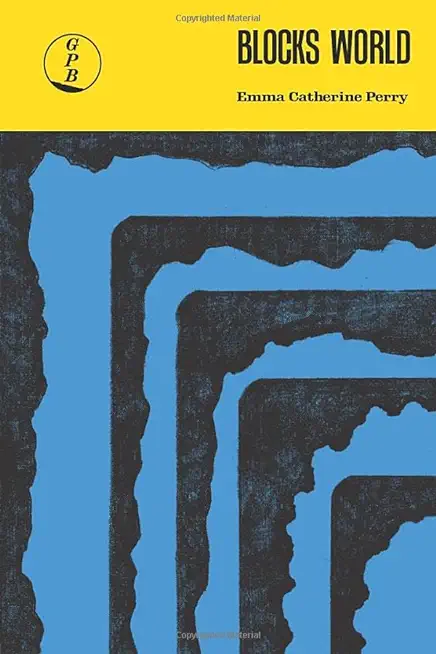
At once playful and ambitious, self-assured and vulnerable, these poems grapple with the thorny entanglements binding computers, plants, animals, and people together. The poet interrogates a snake: "If I don't kill you / will you kill me? If I don't kill you will you live / like a coiled idea in the ground?" Observing her partner across "an abundance of onions" the poet tries and fails to imagine he is "just some guy / in a grocery store / who means nothing to me." Perry asks her computer how the self survives itself, and the computer answers: "it might not be as far-fetched as it seems."
"While reading these poems, I thought the word alarming, and then wondered, do I mean disarming? No, alarming. ("If I don't kill you will you live / like a coiled idea in the ground? // If you kill me will you mourn me?") Blocks World, built around two long, beautiful poems that pump life through the book like hearts or lungs, is an uncanny, fiercely inquisitive collection about nature and technology, sisters and fathers, pain and evil. Here there is "nowhere to live but the land of the self," a "soft apocalypse"; here the self is an alien intelligence, "a bloodful machine." - Elisa Gabbert, author of The Unreality of Memory
"Emma Catherine Perry's Blocks World defies description. This book is an abandoned factory that melts down loneliness and want and arid distances to produce - mysteriously! - abiding love. It's a tangled ethical problem around agency and pain where the fact of suffering is both unknowable and inevitable. It's a joke passed between sisters, between father and daughter, speaker and reader, yearning for connection, consoling and complicating in equal measure. It's a crackling circuit board, a series of inputs and outputs, a computer's elliptical dream. Blocks World is an irreducible event: brilliant, funny, unsettling, and entirely original. A virtuosic debut." - Edgar Kunz, author of Fixer
"'How can I talk to the people I love' is the urgent question at the core of Emma Perry's bracing debut. Her poignant lyric meditations confront her father, mother, and sister as the central others around whom her sense of self revolves--and dissolves. The obsessive, elusive conundrums framing her family galvanize further epistemicand ontological worries: How can I know you, and how will I know if you know me? If 'the things we share divide us, ' where do I leave off and you begin? What or whereis pain, or joy, and what difference, if any, falls between 'grieving / and delighting'? Equally concerned with the sentience of nonhuman actors, from the zoological to the artificially intelligent, Perry is a "bloodful machine" who runs her empathy through various types of color coding and cluster analysis, trying to feel feeling. As if interfacing with Augustine, 'I know what my problem is, ' she says. And yet." - Andrew Zawacki author of Unsun







